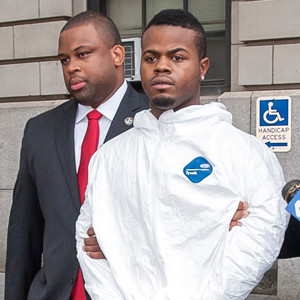(Akiit.com) Teenagers are fascinating when you take a step back and think about them. They’ve got one foot in childhood and one foot in adulthood. It’s this stage in life where a person really finds out who they are, and has experiences that will shape who they are in their adult life. However, as I’m sure you’re aware, teenagers can also be pretty reckless and downright stupid at times! If your teen gets in trouble with the law, it’s important that you know how to act. Here’s some helpful advice for this difficult scenario.
First of all, it’s important to remember two things. Firstly, nobody’s perfect. Secondly, the cops are not on your side or “their own”. Like any parent, you may have a natural inclination towards thinking your child could never do any  wrong, and that any trouble with the law must be the result of them falling in with the wrong crowd. It’s true that sometimes teens can be at the wrong place at the wrong time with the wrong people. It’s also true that parents can often mistake their own child’s character. I know it may be hard, but try to see the situation as objectively as possible when your teen gets into hot water. Blindly defending them may be an expression of love, but it often does more harm than good. Furthermore, don’t see the police as either friends or enemies, or act on these feelings. It’s their job to close cases based on the facts. No more, no less.
wrong, and that any trouble with the law must be the result of them falling in with the wrong crowd. It’s true that sometimes teens can be at the wrong place at the wrong time with the wrong people. It’s also true that parents can often mistake their own child’s character. I know it may be hard, but try to see the situation as objectively as possible when your teen gets into hot water. Blindly defending them may be an expression of love, but it often does more harm than good. Furthermore, don’t see the police as either friends or enemies, or act on these feelings. It’s their job to close cases based on the facts. No more, no less.
While the cops will approach your teen’s case objectively, they are in a position of power. It’s important that your teen is aware that courtesy and respect for the police can go a very long way. If your kid uses the “P” word, it’s certainly not going to do their defence any favours. You should also make sure your teen is aware of what they should and shouldn’t say when first being questioned by a police officer. If they’re asked for their name, date of birth, or address, they should give them promptly and politely. They should be cooperative with any information about their vehicle, too. However, your kid needs to be aware that they have a right to a criminal lawyer, and that they shouldn’t answer any more questions without one present. When your teen asks for a lawyer, the police have to cease their questioning and wait for one to arrive.
Finally, remember that your rights as the parent are going to be somewhat limited, and most of it’s going to be on your teenager. True, some states require parental consultation during questioning. However, there’s no federal, inalienable right you have to be present when your child is being questioned by the police. Of course, with petty, juvenile offences, when your teen wants to have you present, it will generally be allowed. However, you should still be aware that the decision is ultimately down to the officer in charge of the case. This is why it’s so important that your teen knows how to handle being arrested in advance.
Staff Writer; Lawrence Shepherd









Leave a Reply